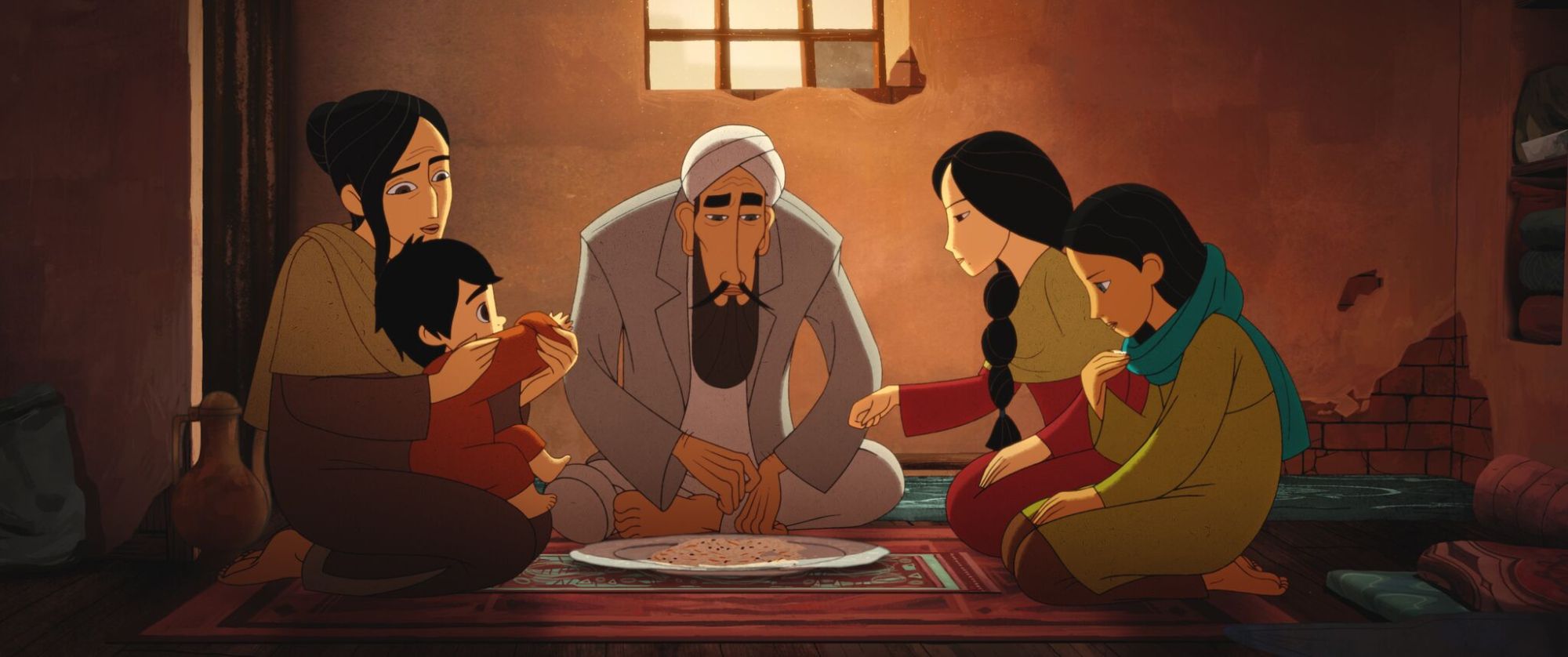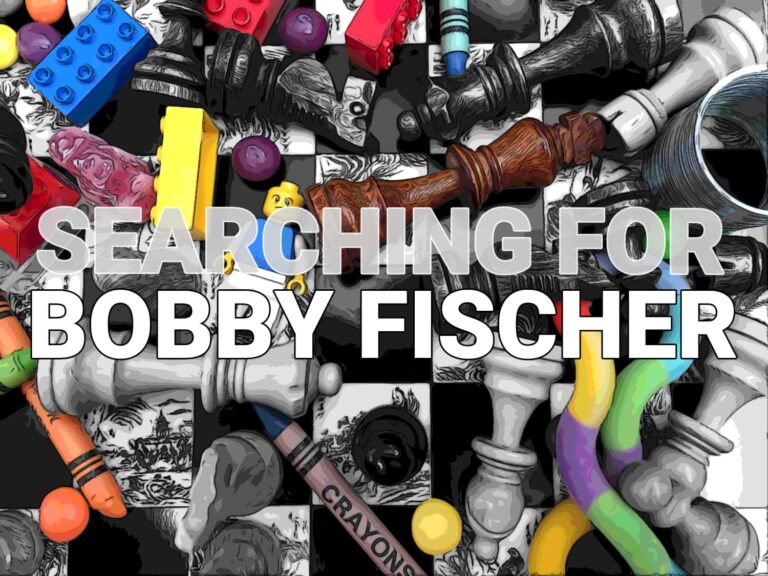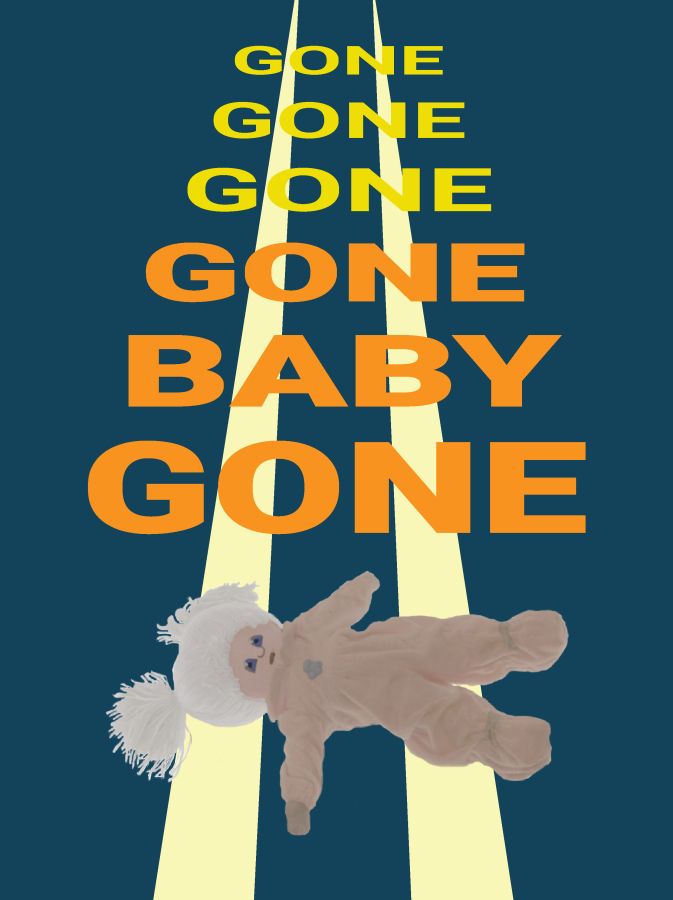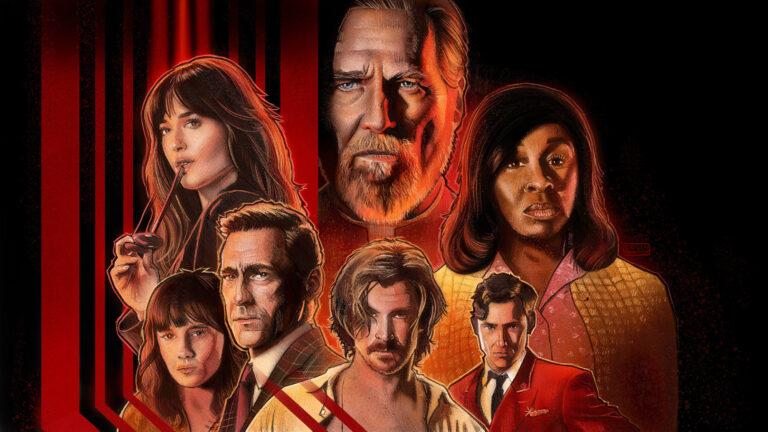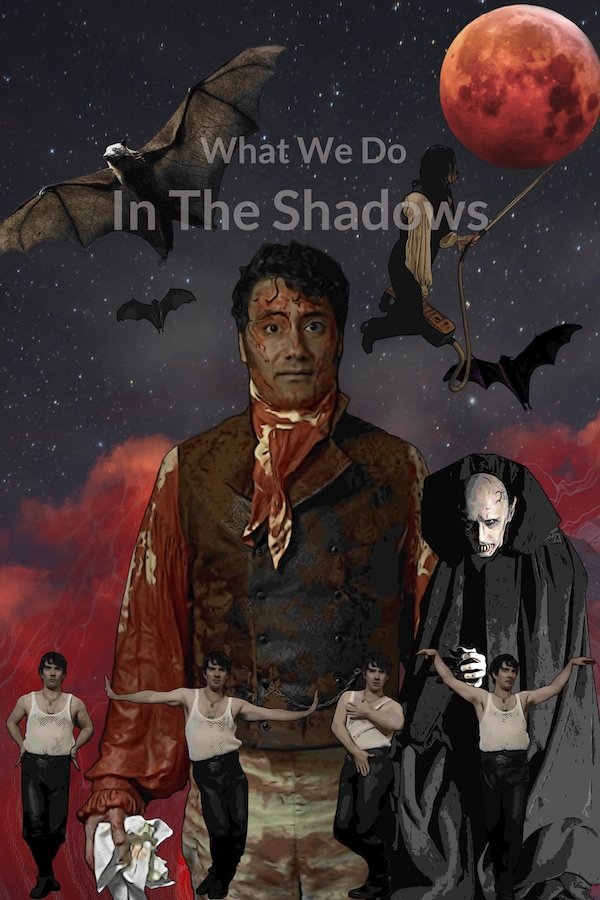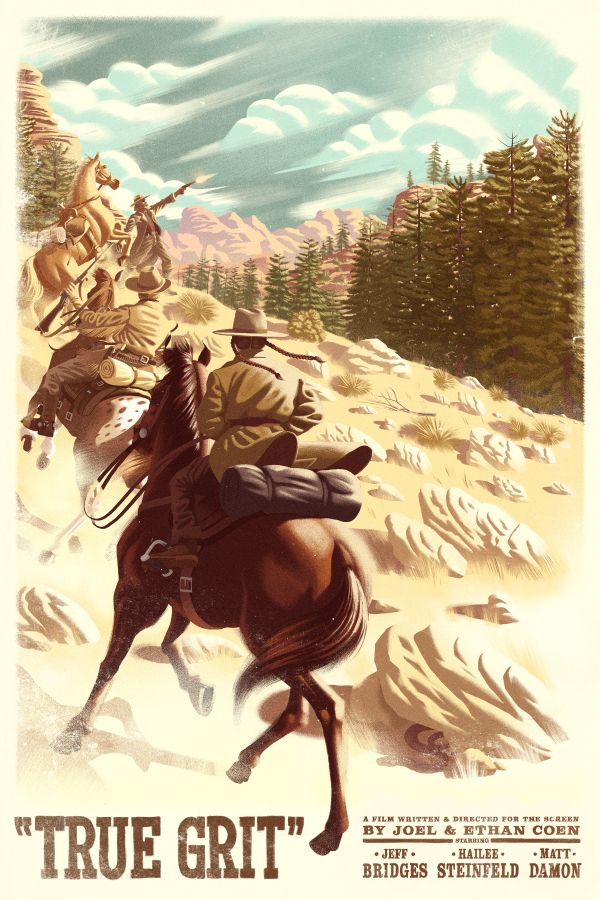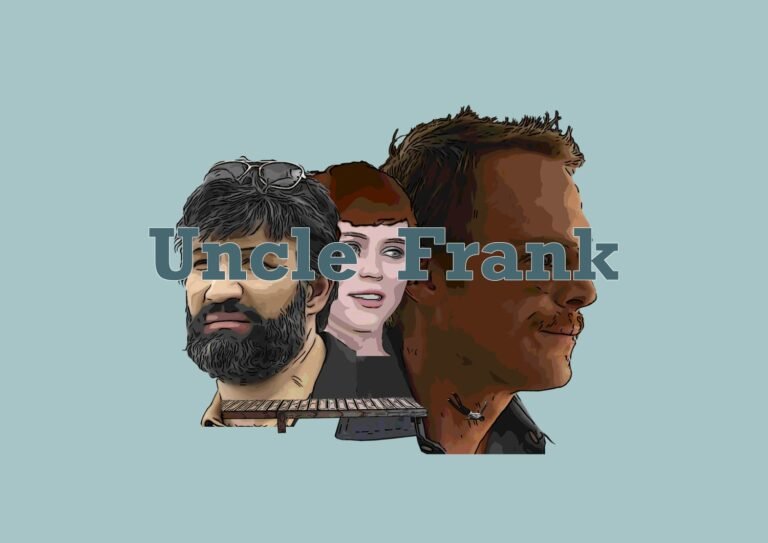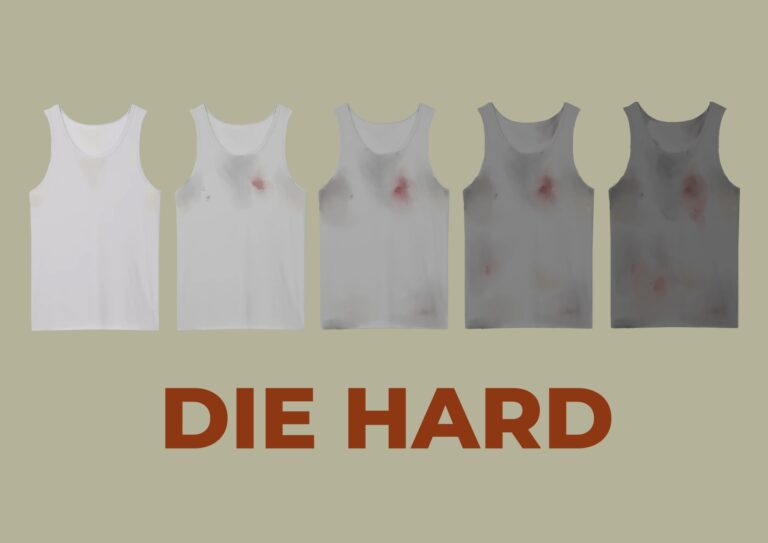The Breadwinner is a beautiful animation that tells the triumphs of family, and the unbreakable strength of those that are pushed down by others on a daily basis. Leading to the irrepressible display of an individual’s bravery and their determination to do more. I can’t sing the praises of this film highly enough, its voice providing the perspective of a life that’s lived by many but not often heard, and through its inspirational narrative creating a desire within you to do more.
Based on the book of the same name by Deborah Ellis, The Breadwinner tells the story of Parvana (voiced by Saara Chaudry), a young girl living in Afghanistan in the early 2000’s and under the regime of the Taliban. On one fateful day, Parvana’s father is taken away from the family and sent to prison for doing nothing more than defending his daughter – who’s viewed as being an object of possession with no mind of her own, or at least one that shouldn’t be spoken. For at this time, and sadly in many places still, women are something “owned” their lives controlled in numerous ways; from not being allowed to leave the house without a man; to not having goods sold to them; and are not to have jobs. All of which mean that for Parvana and her family they face certain starvation with her incarcerated father being the only man in the household. Even getting water from a nearby well is dangerous, but it’s here that Parvana sees an old school friend; who in the disguise of a boy is able to survive. Inspired by this, Parvana undertakes the same dangerous task, and in this becomes the family’s breadwinner. Dressed as a boy, Parvana can work, roam the city, and more importantly for her, find and get back the father she loves so dearly.
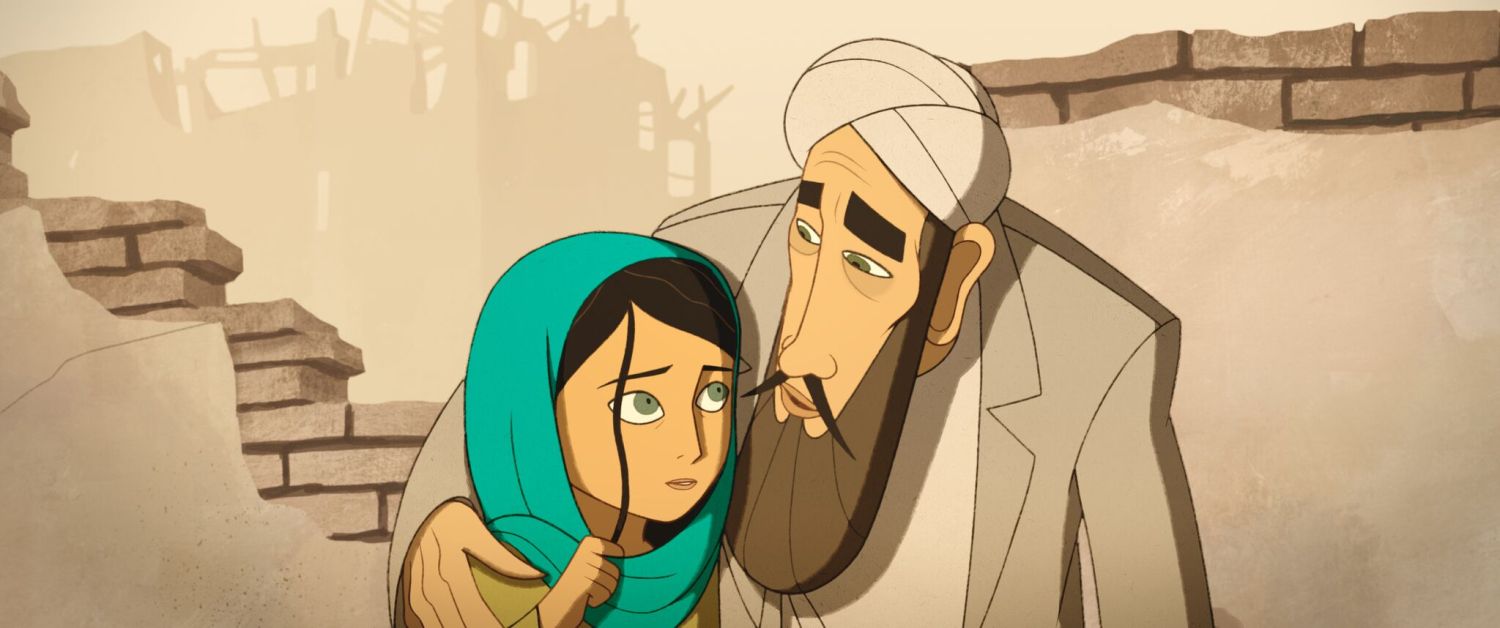 Courtesy of GKIDS, Cartoon Saloon, Melusine Productions, Aircraft Pictures
Courtesy of GKIDS, Cartoon Saloon, Melusine Productions, Aircraft Pictures
Parvana’s tale, though fictional, has many truths within it, The Breadwinner showing that there are in fact many “Parvanas” out there. The restrictions and limitations in living her life coming from external forces (society), without which her achievements could be boundless. The film highlighting this through the opportunities and freedom given to be Parvana as a boy, and thereby questioning not just the restrictions placed on women, but also its judgements.
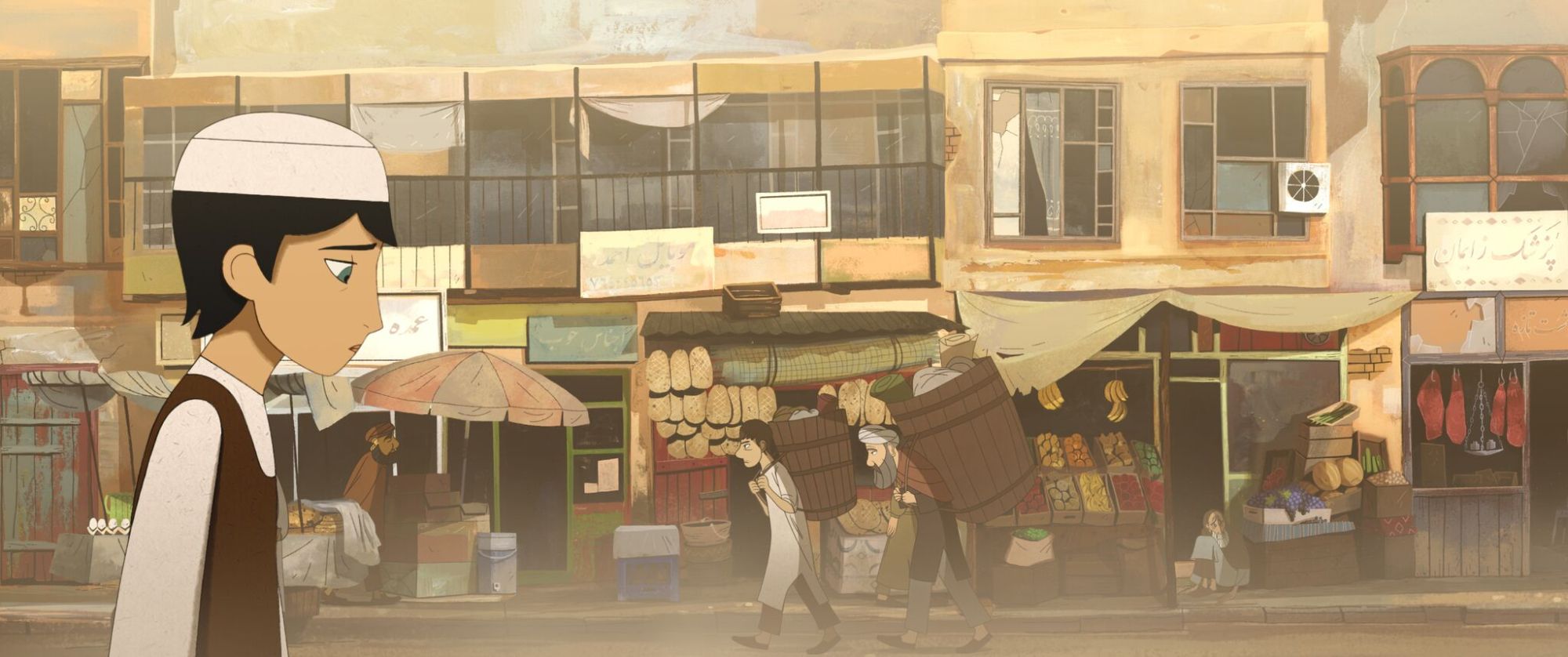 Courtesy of GKIDS, Cartoon Saloon, Melusine Productions, Aircraft Pictures
Courtesy of GKIDS, Cartoon Saloon, Melusine Productions, Aircraft Pictures
Intriguingly, Parvana also weaves a tale from her imagination into the narrative of her life. The animation of her story having a different style to the rest of the movie, with its figurines being almost puppetry in movement, while the colours are bright and the imagery 2D; serving in its story-book illustrations that Parvana is still just a child and shouldn’t be experiencing this life. Another note to her tale, is that she always inserts her story when facing her darkest moments – the strength of her hero passing on to herself. This method of a story within a story also breaks up the harder moments of The Breadwinner, giving the viewer a rest from its harsh world and to reflect against a childhood that should be full of innocence, and play. In this there are similarities to Anne Frank’s story; concealment and persecution from her own country; its existing divisions; to the imaginative stories each child tells.
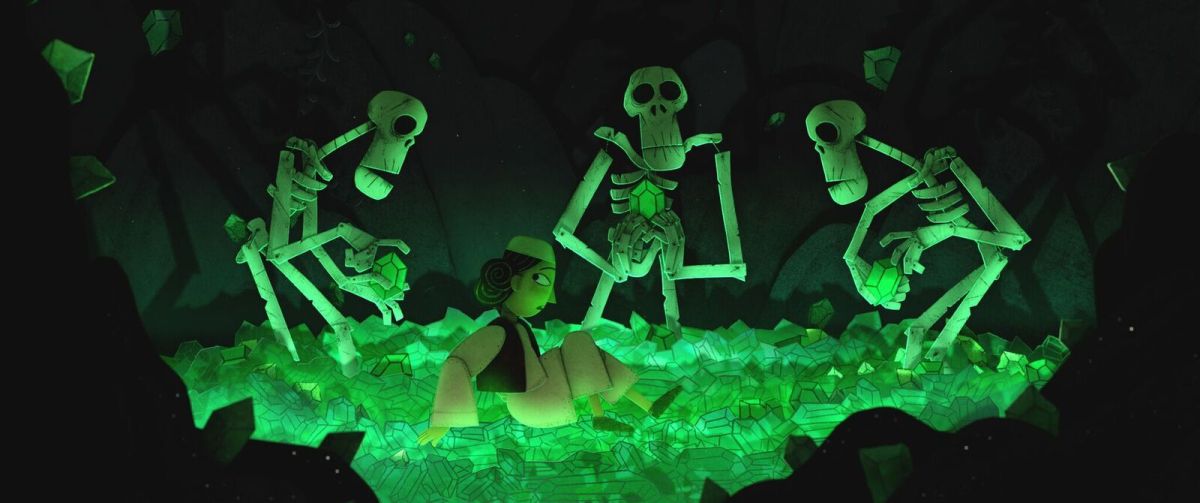 Courtesy of GKIDS, Cartoon Saloon, Melusine Productions, Aircraft Pictures
Courtesy of GKIDS, Cartoon Saloon, Melusine Productions, Aircraft Pictures
The Breadwinner shows the cruelty of conflict for all those that are caught within it, and even shows that the most villainous of characters, such as Idrees – a boy who hounds Parvana, and causes her father’s imprisonment – is still a boy, lost and swept up in the rush to violence, his bravado later replaced with the same fear he has inflicted on others. There are also beautiful moments of showing great risk and sacrifice by both sides in an attempt to do good; Razaq, a Taliban soldier exemplifies this point, and has himself experienced great sadness; while Parvana’s dad defies Taliban orders by teaching all his children (regardless of gender) the benefits of education. Further to this, The Breadwinner also shows that just as both sides can be good, so too can they be bad; distant family members of Parvana not being the heroes they were hoped for, and that the allies who praise themselves as being the rescuers in fact cause indiscriminate carnage on a large scale. In this you are also reminded of the history lesson by Parvana’s dad; of the country’s repeated invasions, of everyone knowing better and of everyone wanting more, even at the expense of tearing a country apart.
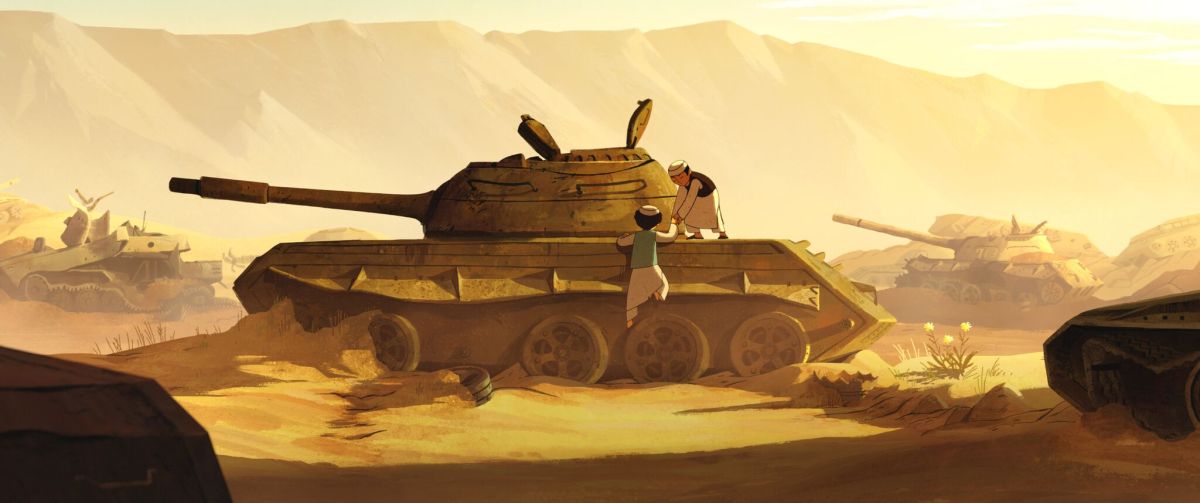 Courtesy of GKIDS, Cartoon Saloon, Melusine Productions, Aircraft Pictures
Courtesy of GKIDS, Cartoon Saloon, Melusine Productions, Aircraft Pictures
Through the eyes of Parvana and her experiences, The Breadwinner gives the viewers a greater sense of countries torn apart by war, of neighbours turning on each other, but also the kindness of strangers. Its realistic narrative not carried by what’s right and wrong but seeks to give form and substance to the individuals caught in between. The director Nora Twomey providing a visual representation in Parvana to empathise with, and through this to actually see the stories of those living in conflict and persecution.
Director: Nora Twomey
Other notable works:
- Wolfwalkers 2020
- The Secret of Kells 2009
Writer: Anita Doron
Writer: Deborah Ellis
Based on the book The Breadwinner by Deborah Ellis
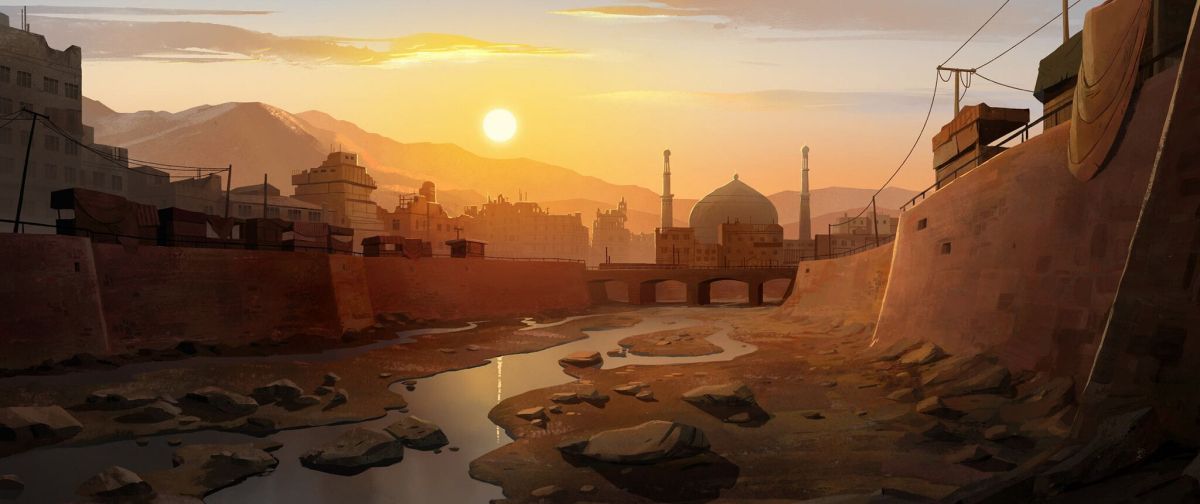 Courtesy of GKIDS, Cartoon Saloon, Melusine Productions, Aircraft Pictures
Courtesy of GKIDS, Cartoon Saloon, Melusine Productions, Aircraft Pictures

